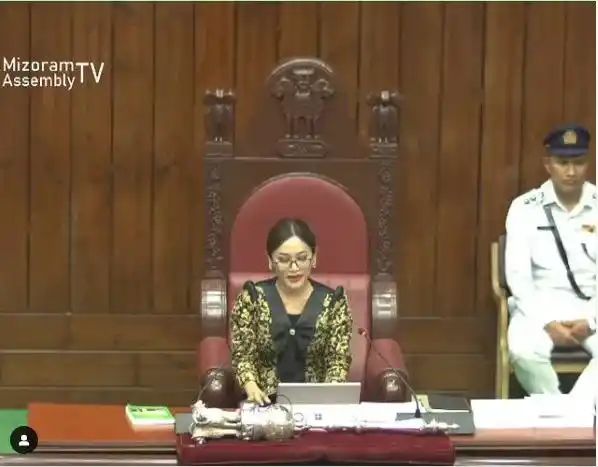Housing Market In A Very Difficult Situation,’ Digital Dollar Is Off The Table, Fed Chair Powell Tells Senate Committee (UPDATED)
Editor’s note: The headline and body of this story have been updated with additional details from Jerome Powell’s Senate testimony. Federal Reserve Chair Jerome Powell returned to Capitol Hill on Thursday for his second day of testimony before the Senate Banking Committee.
Powell’s remarks underscored the Fed’s positive outlook on the economic trajectory, highlighting “continued strong growth, a strong labor market, and continuing progress in bringing inflation down.”
He emphasized that, should the economy follow this anticipated path, the Federal Reserve is prepared to begin the process of easing its currently restrictive policy stance this year.
Concerns Over Basel 3 Endgame And Housing Market Impact
The Senate Banking Committee’s inquiries primarily revolved around the Basel 3 Endgame rules and their implications for bank lending, particularly in the housing sector. Lawmakers expressed apprehension regarding the potential for these capital rules, if implemented without modifications, to disproportionately affect disadvantaged borrowers’ ability to achieve homeownership.
In response to these concerns, Powell acknowledged the risk of adverse effects on mortgage lending and home affordability. “There is a risk like that, and we’re very focused on it,” Powell said.
The Housing Market’s Ongoing Challenges
Addressing the broader challenges in the housing market, Powell described the situation as “very, very difficult.” He pointed out that even with the normalization of rates, the underlying shortage of housing supply is expected to continue exerting upward pressure on prices.
Additionally, Powell raised concerns about housing affordability and the role of insurance costs in coastal areas as significant contributors to inflation.
“The quantity of homes available for sale is incredibly low,” Powell said, suggesting a bleak outlook for those hoping to enter the housing market. He also offered a glimmer of hope, suggesting that as rates and inflation decrease, “we should see the housing market start to heal.”
Yet Powell cautioned that this recovery would not address the long-term structural problems plaguing the housing market.
Powell Addresses CRE Risks, Dismisses Digital Dollar Rumors
Powell reassured the committee that risks surrounding commercial real estate (CRE) loans are manageable within the banking system. However, he also expects to see failures limited to small- and medium-sized banks, which have the greatest exposure to the sector.
“The Fed has identified the banks with high CRE exposure and is in dialogue with them,” Powell stated.
On the topic of a central bank digital currency (CBDC), Powell’s stance was clear: “People don’t need to worry about a central bank digital currency,” he stated.
“We are nowhere near recommending or adopting a central bank digital currency in any form,” Powell added, emphasizing the Federal Reserve’s position that any decision to introduce a digital dollar would require congressional authorization.
Powell addressed concerns about privacy and surveillance in the context of a CBDC, particularly looking at examples set by other nations such as China with the digital yuan. “The Fed would not stand for having the central bank have visibility into individuals’ transactions with their money,” he asserted.
In conclusion, Powell expressed a degree of optimism about the Fed’s current monetary policy stance, suggesting that the central bank is “in the right place” with its current policy but also hinting at the possibility of future rate cuts. “We’re not far from being confident [enough] to cut rates,” Powell remarked.
Read now: February Jobs Report Preview: Could Cooler Labor Market Boost Expectations For Interest Rate Cuts?






